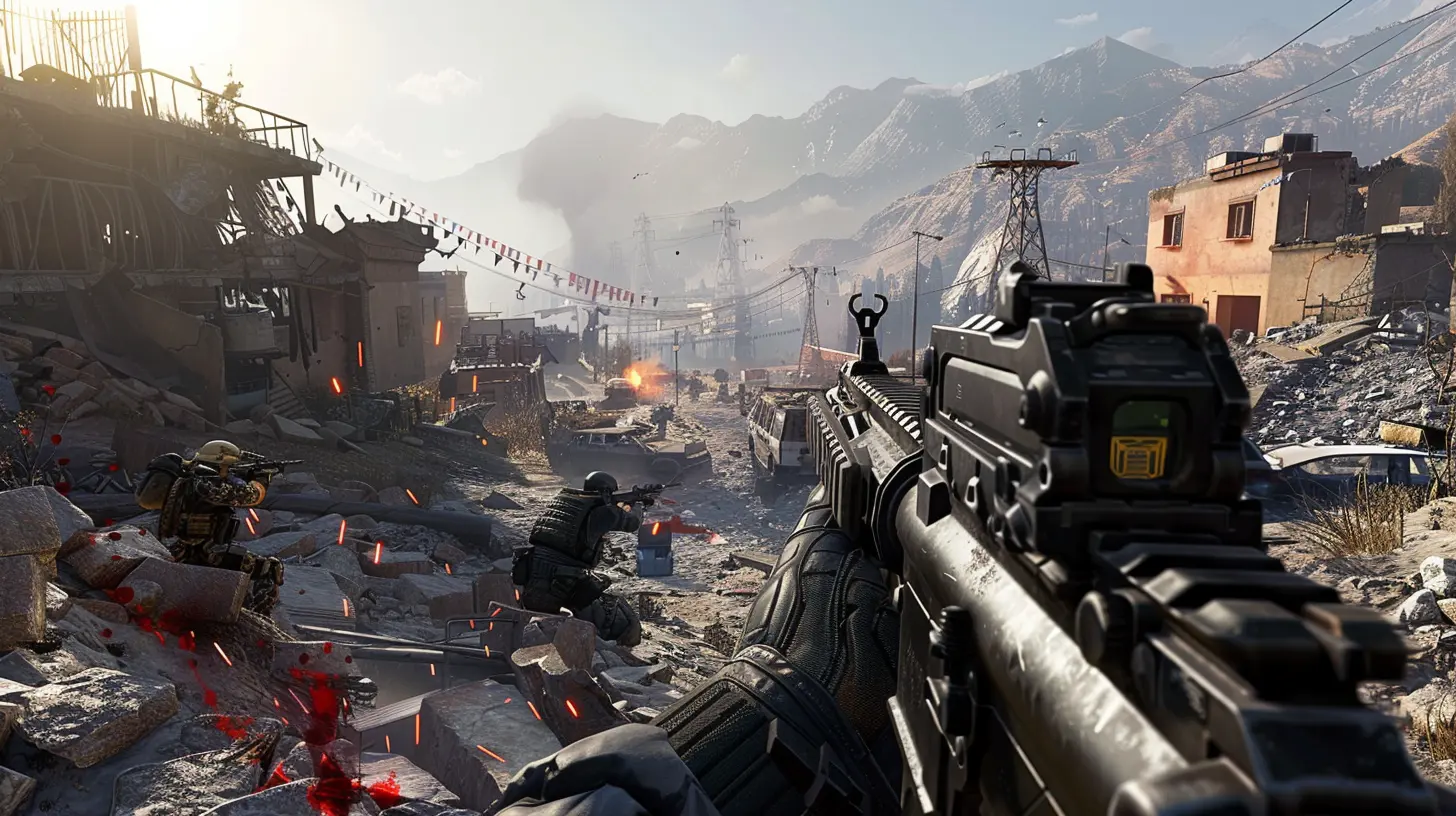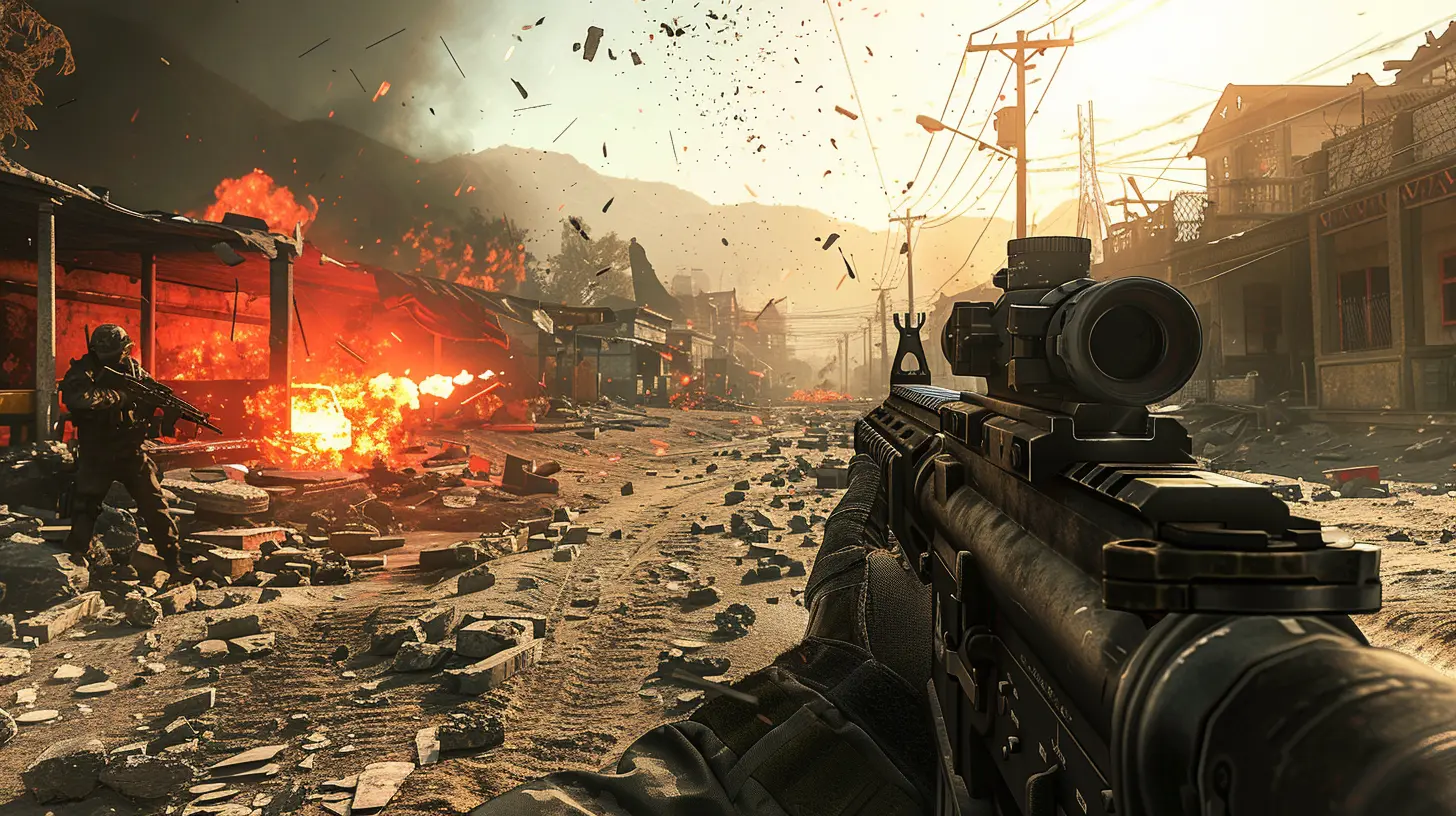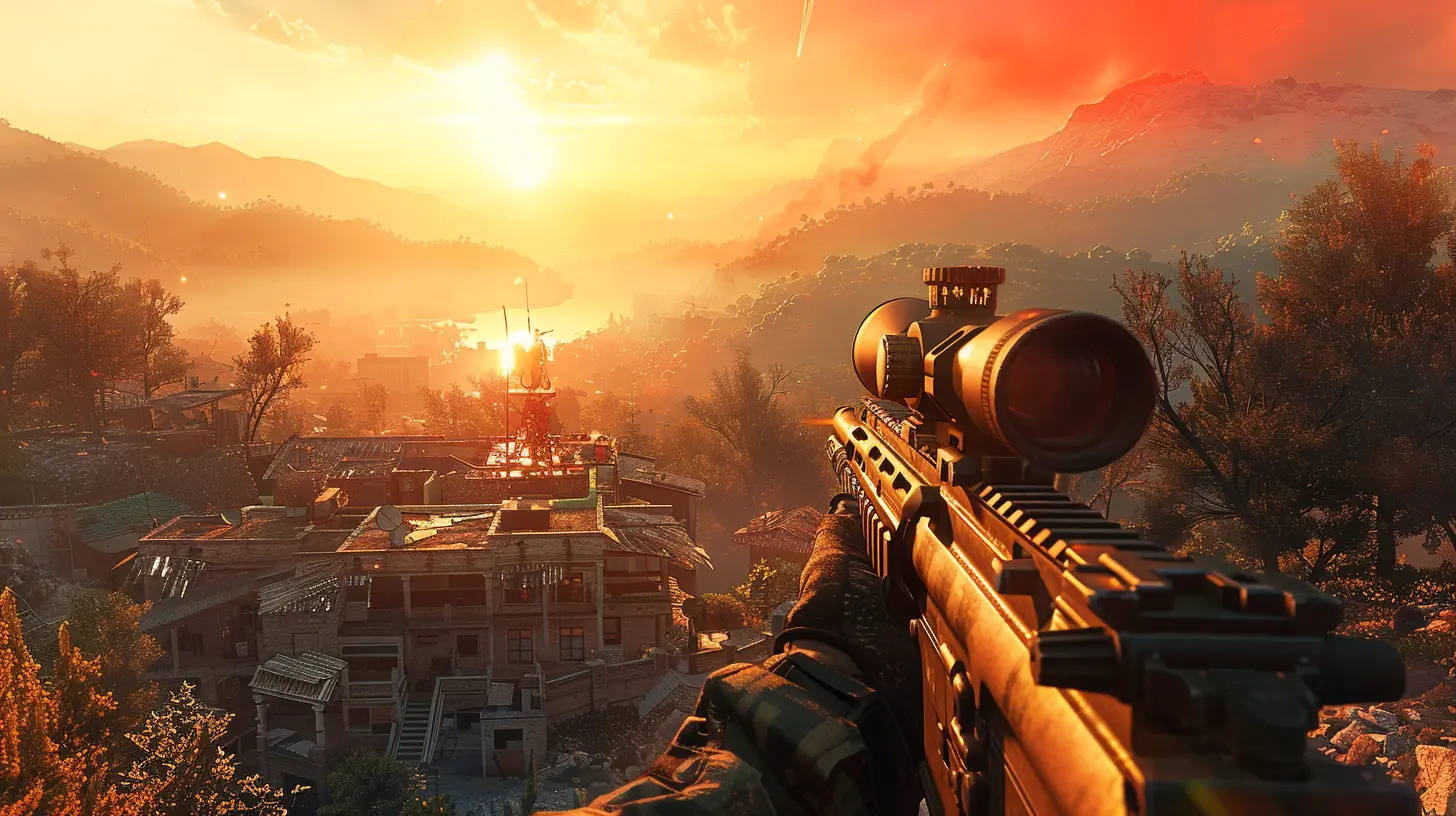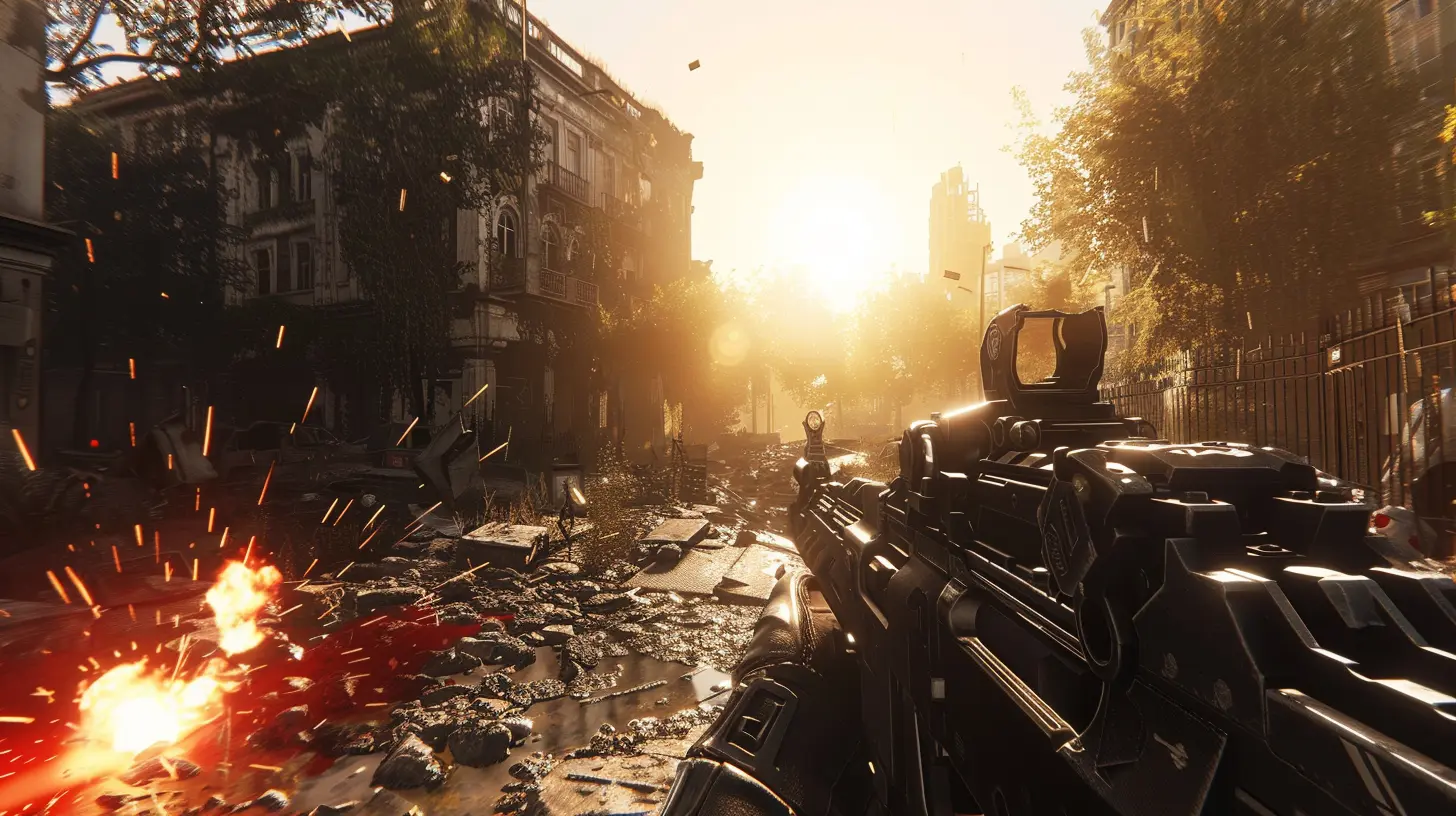The Psychology Behind FPS Multiplayer Gameplay
8 September 2025
First-person shooters (FPS) are more than just high-octane fun and sharp reflexes. Whether you're knee-deep in Call of Duty’s Warzone or battling it out in Counter-Strike: Global Offensive, there's something about FPS multiplayer that taps deep into our psychology. Ever wonder why you're driven to play "just one more match" even after hours of gaming? Or why a clutch moment gives you such an intense rush?
Let’s dive into the fascinating world of the human mind and how it dances with FPS multiplayer gameplay. 🧠🎮
What Makes FPS Games So Addictive?
There's a reason FPS games dominate the online gaming scene. It's not just about shooting stuff—behind the bullets and explosions lies a cocktail of psychological triggers that keep us coming back for more.1. The Dopamine Hit
You know that satisfying feeling when you get a headshot? That’s dopamine at work. This brain chemical is released during moments of reward or pleasure. Every kill, every win, or even an adrenaline-fueled narrow escape amps up dopamine levels.The more we’re rewarded, the more our brain craves it. It’s the same system that keeps social media scrolling addictive or why you keep reaching for potato chips. FPS games are masters at triggering this system through scored kills, level-ups, and victory screens.
2. Fast Feedback Loop
FPS games deliver instant results. You shoot—something happens. You win or lose within minutes. This fast feedback loop gives players a sense of control and progression. Think about it: you get constant updates on your performance. That’s not something we always get in real life.By constantly giving you feedback, FPS games help create a learning loop. Your brain adapts quickly, and each game becomes a new opportunity to prove yourself.
Multiplayer Magic: Why Competing With Others Feels So Good
When you throw real players into the mix, things get seriously exciting. It’s one thing to outwit AI, but beating a human opponent? That unlocks a whole new level of satisfaction.3. Social Comparison and Status
Humans are wired for comparison. In multiplayer FPS games, this behavior is front and center. Leaderboards, kill-death ratios, and rank points all feed into our need to measure ourselves against others.Winning doesn’t just feel good—it makes us feel superior. And even if we're not trying to be the best, we’re always aware of how we stack up. It’s a bit like the high school popularity contest, just with guns and grenades instead of cliques and gossip.
4. The Drive for Mastery
FPS games require skill, and we love getting better at things. Whether it’s improving your aim, learning new maps, or mastering game mechanics, the pursuit of mastery keeps players deeply engaged.This hits on something psychologists call “intrinsic motivation.” Basically, we get satisfaction from growth itself, not just the results. Every headshot improvement or new trick you learn is fuel to keep the grind alive.
Emotions on the Battlefield
Emotions run high in FPS games. From the thrill of winning to the rage of getting spawn-camped, the emotional rollercoaster is real.5. Adrenaline Rush
Ever feel your hands shake after a clutch win? That’s your fight-or-flight system kicking in. FPS multiplayer games simulate real-life danger (without the actual danger), triggering adrenaline spikes. This physical response adds to the intensity and excitement of matches.It’s like your body doesn’t know it’s “just a game.” The high from surviving a last-second ambush or executing the perfect flank feeds the excitement loop.
6. Rage, Tilt, and Emotional Investment
FPS games can also push you to your limits emotionally—especially when things aren’t going your way. "Tilt" is a real thing, and it's more than just gamer slang. It refers to a state of emotional frustration that leads to poor performance.Why does it happen? Since FPS games are fast-paced and personal, every failure feels magnified. Add trash talk or a toxic teammate to the mix, and it only intensifies.
But here's the weird part: those frustrations often don’t push us away. They pull us in. Our mind wants redemption, closure, or validation. So we queue up for another match.
The Importance of Teamwork and Communication
FPS gameplay isn't just about individual skills—it’s also about team dynamics. Especially in games like Rainbow Six Siege, Valorant, or Overwatch, where communication and coordination are everything.7. The Power of Shared Goals
Playing with a squad taps into our sense of belonging. Working toward a shared win creates connection and camaraderie. Even if your teammates are random strangers, the collective effort builds a bond—if only for one match.This ties into what psychologists call "social identity theory." When you're on a team, even a temporary one, your brain starts associating with that group. Winning becomes personal.
8. Communication and Leadership
Voice chat can be chaotic, but it’s also a powerful tool. Players develop roles naturally—leaders, supporters, strategists. Some give orders, others follow. These dynamics mimic real-life social structures and give players a chance to flex different personality traits.Ever notice how some quiet players suddenly become vocal during tense moments? That’s the psychological effect of increased responsibility and trust during gameplay.
Game Design Tricks That Keep You Hooked
Game developers aren’t just coding for fun—they’re using psychological principles to shape behavior. Here’s how they keep you coming back.9. Progression Systems
From unlockable skins to leveling systems, FPS games give you reasons to log in “just one more time.” These systems tap into the human desire for achievement and status. The more you play, the more you unlock—and the more elite you feel.Even daily missions or limited-time events create urgency. Miss out? You’ve lost something. That triggers FOMO (Fear of Missing Out), making you more likely to log in every day.
10. Customization and Identity
Let’s be honest—everyone likes to look cool. Whether it’s customizing your operator in Rainbow Six or rocking a rare weapon skin in CS:GO, personalization matters.These features tap into our desire for identity. We want to express ourselves, even in virtual worlds. And when we look good, we play with more confidence. It’s psychological armor.
Flow State: Being “In The Zone”
If you’ve ever lost track of time during an FPS session, you’ve probably experienced the flow state.11. What is Flow?
Flow is that sweet spot where challenge meets skill. You’re fully immersed, focused, and everything just “clicks.” It’s like time slows down, and your mind and body are in sync.FPS games are perfect flow machines. They demand your attention, match your skill level with others, and offer constant feedback. When you're flowing, everything else melts away—it's just you and the match.
12. Why Flow Matters
Achieving flow gives a deep sense of satisfaction. People pay big money for experiences that produce it—extreme sports, concerts, even meditation retreats. FPS multiplayer gives it to you with a mouse and keyboard.Flow also contributes to the overall mental well-being of players. It's like a mental workout, sharpening focus, reaction time, and decision-making under pressure.
The Social Factor: Friends, Foes, and Communities
FPS games aren’t just about gameplay—they’re social platforms.13. Making Friends (and Rivals)
Multiplayer shooters help forge friendships. Some of the strongest online communities revolve around FPS titles. Shared experiences, communication, and inside jokes create bonds that go beyond the screen.On the flip side, rivalries (even friendly ones) can push us to play harder. Nothing like going toe-to-toe with someone you’ve been trying to outplay for weeks.
14. Clans, Guilds, and Team Spirit
Joining a clan or team gives players a deeper sense of purpose. Now you’re not just playing for yourself—you represent a group. That accountability and identity drive engagement and deepen emotional investment.These structured social groups also help reduce feelings of isolation that some gamers might experience. It’s not just about the game—it’s about being part of something bigger.
FPS Games and Real-Life Skills
Believe it or not, FPS games aren’t just mental junk food. They actually help build useful skills.15. Improved Reflexes and Hand-Eye Coordination
The intense, fast-paced action in FPS games trains your reflexes. Players often develop better motor skills, faster reaction times, and sharper visual processing.That’s not just anecdotal. Studies back it up—regular FPS players can often respond to stimuli faster than non-gamers.
16. Strategic Thinking Under Pressure
Reading maps, predicting enemy movement, managing ammo, and coordinating with a team all demand mental agility. You’re basically playing 4D chess with guns.These skills translate into real-world scenarios like problem-solving, time management, and decision-making under stress.
Closing Thoughts
FPS multiplayer games aren’t just fun—they’re a psychological playground. From reward systems to emotional highs, from social bonding to cognitive skill-building, these games resonate with deep parts of the human psyche.At the end of the day, whether you’re no-scoping in Halo or spraying in Apex Legends, there’s more going on in your head than you might realize. The joy, frustration, and thrill of FPS multiplayer are more than pixels—they’re personal.
So next time you boot up your favorite shooter, remember: you’re not just playing a game. You’re engaging with one of the most complex and fascinating parts of being human—your brain.
all images in this post were generated using AI tools
Category:
First Person ShooterAuthor:

Pascal Jennings
Discussion
rate this article
1 comments
Porter Robinson
Absolutely loved this article! It’s fascinating to see how FPS games tap into our psychology, fostering teamwork and strategic thinking. Remember, every match is an opportunity to grow, learn, and connect with fellow gamers. Keep pushing your limits and enjoy the journey!
September 20, 2025 at 3:58 PM

Pascal Jennings
Thank you! I’m glad you enjoyed the article and found the insights on teamwork and growth valuable. Happy gaming!


